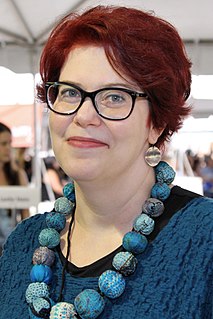A Quote by Octavio Paz
Art for Duchamp, all the arts, obey the same law: meta-irony is inherent in their very spirit. It is an irony that destroys its own negation and, hence, returns in the affirmative.
Related Quotes
And make no mistake: irony tyrannizes us. The reason why our pervasive cultural irony is at once so powerful and so unsatisfying is that an ironist is impossible to pin down. All U.S. irony is based on an implicit "I don’t really mean what I’m saying." So what does irony as a cultural norm mean to say? That it’s impossible to mean what you say? That maybe it’s too bad it’s impossible, but wake up and smell the coffee already? Most likely, I think, today’s irony ends up saying: "How totally banal of you to ask what I really mean.
I feel like in American fiction we're moving out of a period of intense irony, and I'm very glad about that. I feel like irony is fine for its own sake but shouldn't be the sole reason to write a book. It has been an ironic world view: that's the best way I can describe it. I'm a fan of earnestness. I feel like there's a new wave of earnestness and I'd be happy if I'm some small part of that.
Such techniques, including meta-discursive stuff, self-reference, irony, black humor, cynicism, grotesquerie and shock, it would be safe to say that television or televisual values rule the culture. Television is successfully using a lot of those same techniques but using them for a very different agenda, which is to sort of create an ethos and please people and to sell products to consumers.





































